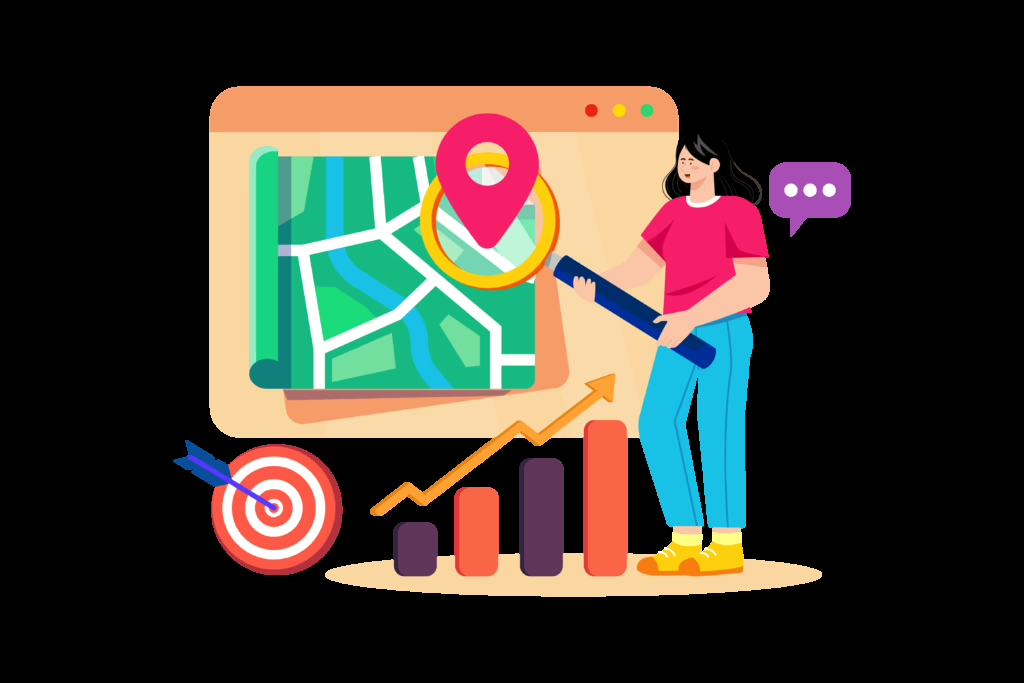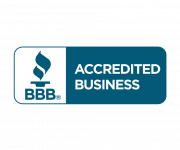Our Blog
We share our knowledge
In the ever-evolving world of digital marketing, Artificial Intelligence (AI) and Machine Learning (ML) have shifted from tech buzzwords to real business game-changers. The application of AI and Machine Learning, particularly in Canadian digital marketing, is noteworthy. Forward-thinking brands across Canada are leveraging these technologies to streamline operations, deliver ultra-personalized experiences, and uncover insights no […]
As the holidays approach, businesses worldwide recognize a unique opportunity to connect with consumers. The holiday season brings an influx of shoppers, eager for the best deals, gift ideas, and memorable experiences. While some may see the holiday rush as a challenge, savvy businesses know it’s the perfect moment to capitalize on heightened consumer spending […]
Instagram, with its visually appealing platform and a user base of over a billion, has become a pivotal tool for businesses aiming to expand their reach and grow. Advertising on Instagram is not just about posting pictures; it’s about crafting a strategic approach that resonates with your target audience. In this guide, we’ll delve deep into the world of Instagram advertising, offering insights and strategies to harness its potential for business growth.

1. Understanding the Power of Instagram
A. Immense User Base:
Instagram boasts over a billion monthly active users. This vast audience provides businesses with an opportunity to reach diverse demographics, from millennials to Gen Z and beyond.
B. Engagement Rates:
Compared to other social media platforms, Instagram has a higher engagement rate. Users are not just scrolling; they’re interacting, commenting, and sharing. Over 500 million users engage with Instagram Stories daily, offering brands a unique way to interact with their audience. With features like “Shop Now,” Instagram has transformed from a mere photo-sharing app to a platform where users can discover and purchase products.
2. Crafting an Impeccable Instagram Marketing Strategy: An Expert’s Perspective
Instagram, with its visually rich platform and diverse user base, is no longer just a social media platform; it’s a pivotal marketing tool. Here’s our strategic blueprint for mastering Instagram marketing:
A. Strategic Objectives are Paramount:
Before you even consider content creation, it’s imperative to delineate clear, measurable objectives. Are you aiming for brand visibility, lead generation, or community building? Your objectives will steer your entire strategy.
B. Deep Audience Insight is Gold:
Beyond basic demographics, delve into the psychographics of your audience. Understand their aspirations, challenges, and consumption patterns. Tools like Instagram Insights, while valuable, only scratch the surface. Consider advanced analytics platforms for a deeper dive.
C. Profile Optimization is Non-Negotiable:
Your Instagram profile is your digital storefront. Every element, from your bio to your profile image, should be meticulously curated. The link in your bio, for instance, is prime real estate—consider using tools that allow for multiple links or frequently update it based on campaigns.
D. Content is King, But Context is Queen:
While high-quality visuals are paramount, the context in which they’re presented is equally crucial. Your captions, hashtags, and even the timing of your posts play pivotal roles in engagement.
E. The Power of Storytelling:
Instagram Stories, Reels, and IGTV offer unique formats for brand storytelling. As an expert, I’ve observed that brands that weave compelling narratives consistently outperform those that merely push products.
F. Influencer Collaborations: The Right Way:
Influencer marketing isn’t about sheer follower numbers. It’s about alignment, authenticity, and engagement rates. Handpick influencers whose values resonate with your brand and whose followers align with your target demographic.
G. Data-Driven Decisions:
In the world of digital marketing, intuition is valuable, but data is indispensable. Regularly analyze performance metrics, conduct A/B tests, and adjust your strategy based on tangible insights.
H. Paid Advertising: Beyond Basics:
While organic growth is commendable, the true potential of Instagram as a marketing tool is unlocked when you leverage its advanced advertising options. Dive deep into lookalike audiences, retargeting, and dynamic ads for maximized ROI.
I. Engage, Don’t Broadcast:
The brands that truly thrive on Instagram are those that engage in genuine two-way conversations with their audience. Prioritize engagement over sheer reach. Remember, in the world of social media, depth often trumps breadth.
J. Continuous Adaptation:
Instagram, like all digital platforms, is in a state of flux. Algorithm changes, feature additions, and shifting user behaviours necessitate a strategy that’s agile and adaptable.
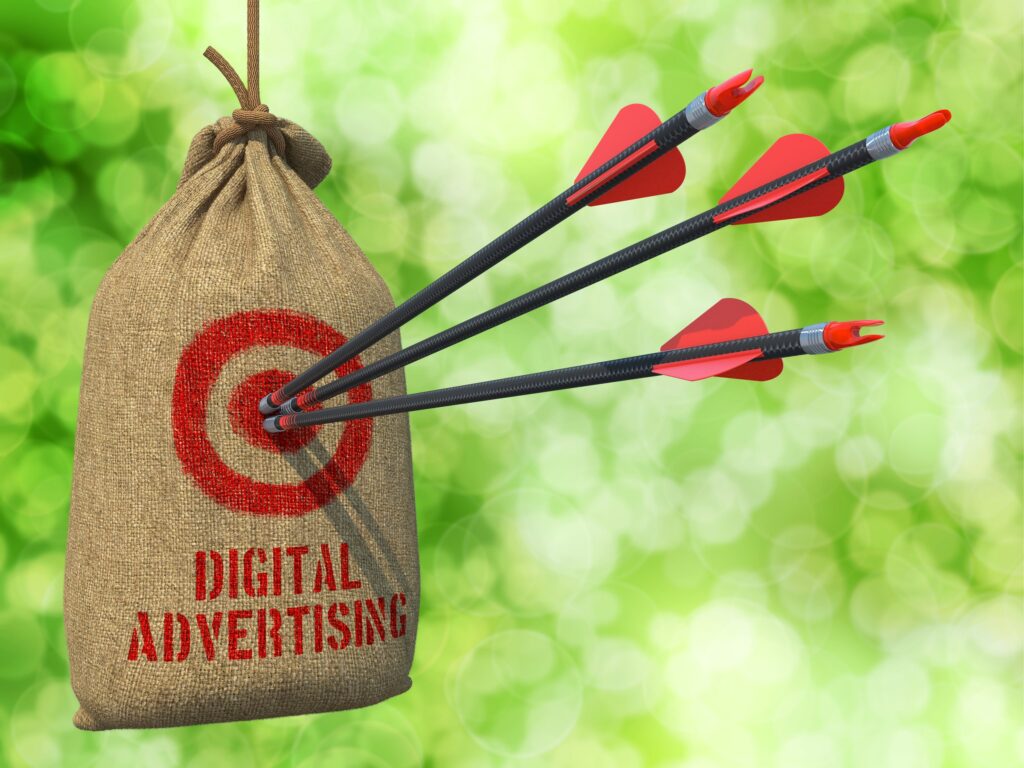
3. Leveraging Instagram’s Advertising Tools
A. Sponsored Posts:
These are regular posts that you can promote to reach a broader audience. They appear on users’ feeds and can be tailored to target specific demographics.
B. Instagram Stories Ads:
With over 500 million daily users, Stories offer a unique advertising opportunity. These ads appear between user stories and can be interactive, allowing users to swipe up and take action.
C. IGTV and Reels:
These video platforms on Instagram are gaining traction. Consider creating long-form content on IGTV or short, engaging clips on Reels to captivate your audience.
4. Measuring Success
A. Engagement Rate: While likes and comments are the surface of engagement, delve deeper. How many users are saving your posts? How many are sharing them? These metrics often provide a clearer picture of genuine interest and engagement.
B. Click-Through Rate (CTR): A high CTR is indicative of compelling content and effective calls to action. However, it’s essential to differentiate between mere clicks and meaningful interactions. Are users merely visiting your linked page, or are they taking desired actions once they’re there?
C. Conversion Rate: Beyond the initial conversion, consider metrics like the lifetime value of a customer and the average order value. These deeper metrics provide insights into the quality of conversions and the overall effectiveness of your Instagram campaigns.
5. Trends to Watch
A. Rise of E-commerce:
With features like Instagram Shop and shoppable posts, Instagram is becoming a significant e-commerce platform. Businesses should leverage this to showcase products and drive sales.
B. Emphasis on Authenticity:
Users value genuine interactions. Brands that prioritize authenticity, transparency, and meaningful engagements are likely to see better results.
Ready to elevate your Instagram game? Dive deeper into the world of strategic Instagram marketing with Social Know How. Don’t just be part of the conversation; lead it. Click here to claim your free assessment and unlock the secrets to Instagram success!
SEO is one of the most critical areas of digital marketing, but it can also be very confusing and difficult to understand.
Here are some of our best tips on how SEO will change in the year 2023 so that you can stay ahead of the game and ensure that your business stays relevant in such a fast-moving and dynamic industry.

The Future of SEO
SEO is evolving. Google is changing. The way we search, the way we interact with content, and even how our devices function – everything is going through a massive transformation. That means SEO strategies will have to change as well!
Google wants to provide users with the best experience possible on their search engine. They want people to find what they want, when they want it—and that includes finding content that resonates most with their personal interests and needs (which can differ from person to person). This means that in order for your website or blog post about SEO for example to rank highly in Google’s results pages (SERPs), it must be able to satisfy both user intent AND personalize itself based on a user’s preferences/history/etc., among other things…

What will stay the same?
Recently Google announced that they would be penalizing websites that use aggressive or misleading SEO practices. This was a major step towards improving the quality of search results for users and ensuring that their algorithm reflected this.
For the foreseeable future, it seems likely that Google will continue to improve their search results in order to provide consumers with more accurate information about products and services.
SEO is a long-term strategy; you can’t expect results overnight! It’s important for businesses who are new to SEO to understand how complex this process really is before diving in headfirst (or hiring someone else).
Remember: SEO isn’t something you do once and forget about; it’s an ongoing process that requires constant maintenance as well as regular updating of your website content and social media channels in order to stay relevant among new audiences while also keeping existing customers engaged with fresh information on a regular basis
What will change?
-
- Social media will become more important.
-
- Visual search will become mainstream.
-
- Content marketing will be even more important than it is today.
-
- Keywords will become less important, as Google focuses on other signals (and because people don’t really use keywords anymore).
-
- There will be a greater emphasis on the user experience, making it harder to rank high if your site is slow or difficult to navigate
SERP features
One of the most exciting developments in SEO is that Google continues to experiment with new features and functionality. This shows that they’re committed to making search more useful for users, by providing results that are engaging and relevant.
The future of keywords
In the future, keyword research will be more important than ever. In fact, keywords may become even more important than they are today.
Google has made it clear that its strategy for ranking websites involves using keywords as a signal to determine how relevant a piece of content is to its searcher’s query. Keywords are critical because they indicate the core topic of your website. If you want to rank high in Google’s search results and get more clicks (and therefore more conversions), then you need to focus on creating content around keywords that people actually search for when looking for what you offer.
You can expect to see keyword research become even more specific and targeted in 2023 than it is today!

Content as a product
Content is king, and the most important component of SEO. Content marketing helps you build a brand and drive traffic to your site. It also builds links, which improve your search rankings. As an added bonus, content marketing can be used to generate leads and sales!
How to get started now
If you want to make sure your SEO strategy is on track for 2023 and beyond, here are some tips:
-
- Review the latest SEO trends.
-
- Create a content strategy that can be adapted as needed over time.
-
- Update your website’s internal linking structure to reflect how users will navigate through it (and not just based on what’s easiest for you).
-
- Get to know your audience better by asking questions in surveys or on social media; this will help when creating relevant content that’s going to resonate with readers/users and make them want to share it with their friends!
-
- Do some keyword research so you know where there is demand for topics related to yours online (this can also help you come up with ideas for new content).
Businesses are encouraged to start preparing for these predictions today to ensure that they are staying ahead of the game.
To start, businesses should consider their current SEO strategy. What is working for your business? What isn’t? Are there any opportunities for improvement? If so, how can you address them?
The next step is to consider how these trends may affect the way that users search for products or services in the future. How will consumers change their behaviour as AI-powered assistants become more prevalent and what are some ways that businesses can adapt to this changing landscape with their marketing strategies?
Conclusion
These are exciting times for SEO and the industry as a whole. As we wrap up this post, there is no question that SEO will continue to evolve in new ways. Businesses need to stay informed about these changes so they can adapt accordingly. If you want more information on how to prepare your website for what’s coming next, contact us today!
Psst! Did you know that your company could benefit immensely from a free social media assessment? Now you do! Contact us today!
Is your small business ready to take the next step toward growing? Then, you’ll want to start marketing your business online. The best way to accomplish this is through social media marketing. However, there are many different ways that social media marketing can be done, and finding the right company that can help you with this process can be challenging at times. That’s why we’re here!
We’ll walk through what exactly social media marketing is, why it’s important for your small business, and how much it costs so you can make an informed decision about whether or not this will help propel your brand forward in 2023.

Why is it important to market your small business online?
Marketing is essential for small businesses to grow and thrive. You need customers, and then some customers, and then some more customers.
You also want loyal customers, because they’ll help you get more clients with their referrals in the future. This means they’re willing to pay more money for your product or service than someone who isn’t already a customer would be willing to pay—and they want only your product/service over other similar ones on the market.
By marketing your business online, you can reach an audience that otherwise wouldn’t know about it!
How much does social media marketing cost?
While the cost of social media marketing will depend on the type of service you need and the number of followers you have, it’s also important to consider how much time you want to devote to this aspect of your business in general.
If it’s just a small part of your overall strategy, then a minimal amount is required. You might be able to hire an independent contractor or intern who can manage all your social media channels for an affordable rate—perhaps even for free if they are getting something else out of the arrangement, like college credits or experience working at an actual company.
With this approach, however, there will still be some costs involved with things like creating new graphics and content for individual posts as well as marketing tools that allow people interested in following along with what’s going on within each channel (such as being able to subscribe through email).

But how much does it cost?
The answer depends on the size of your business, which platforms you want to use, and what your goals are.
The cost of social media marketing varies depending on the size and scope of your business, but it can range from $1500 per month to $5,000, or sometimes even more when you decide to promote your products or services with ads.
For example, if you want to use social media to drive traffic to your website – like through paid posts or sponsored content – then it will cost more than if you’re just using it to post updates about your business or products.
You also need to consider that different platforms charge different rates for sponsored posts.
What marketing services does Social Know How offer?
- Social media marketing: We’ll help you create great content for your social media pages, including Facebook, Twitter, LinkedIn and Instagram. The goal is to drive engagement and build your brand presence on these platforms.
- Search engine optimization (SEO): We’ll optimize your website with the right keywords so that it ranks high in search engines like Google. This will help you get more traffic from organic searches to your website.
- Content marketing: You need quality content if you want people to come back for more of your great stuff! Whether it’s blog posts or videos on YouTube or Instagram stories—we can help you create them all at a reasonable cost point so that they don’t hurt the bottom line too much (or at all).
- Email marketing: Nobody likes spammy emails, but everyone loves an excellent one-time offer delivered directly into their inboxes! Let us show you how easy it can be when we craft an email campaign based on our research into what best resonates with potential customers within each industry segment that we target together as partners in crime towards mutual success in achieving business goals through digital transformation.
- Ads: Paid search ads are very effective because they target people who are actively looking to buy a product or service, which means they’re more likely to respond to your ad than if it were shown to them by chance.

Marketing your business with a digital marketing agency helps you avoid wasting money on ineffective strategies.
Social media marketing is an effective way to reach your customers and connect with them. However, it can be difficult to manage social media accounts regularly if your business isn’t in the digital marketing industry.
If you’re looking for a cost-effective way to market your business, then a digital marketing agency is the answer. Social Know How offers expert social media marketing services for small businesses that can help you reach new customers and grow your brand at the best price. Speak to one of our experts to know how we can get optimize your online presence to the fullest!
Psst! Did you know that your company could benefit immensely from a free social media assessment? Now you do! Contact us today!
Are you tempted to buy Instagram followers? Think twice before you hit that purchase button. While the promise of instant social media success can be tempting, buying followers can lead to a host of problems.
In today’s digital age, Instagram is a popular platform for businesses and individuals alike to showcase their brands, products, and services to a wider audience. While having a large following on Instagram may seem like a great way to boost engagement and gain more attention, some individuals and businesses opt to buy followers to inflate their numbers quickly.
However, buying followers is not a sustainable or ethical way to grow your Instagram account. In this blog, we’ll explore five reasons why buying Instagram followers is a bad idea.

From fake accounts and low engagement to the potential harm to your brand’s reputation, we’ll give you the inside scoop on why you should avoid this shortcut to social media success.
So, before you spend your hard-earned money on fake followers, read on to learn why it’s better to grow your Instagram presence organically.
Inorganic Engagement
When you buy Instagram followers, you’re not buying real people who are genuinely interested in your brand. Instead, you’re buying fake accounts or bots that are created to increase your follower count. These bots have no interest in your brand, and they won’t engage with your content. As a result, your engagement rate will drop significantly, and your content won’t reach your target audience, which will affect your overall brand image.
For instance, let’s say you buy 10,000 followers, and none of them engage with your posts. In this scenario, Instagram’s algorithm will assume that your content is not relevant to your target audience, and as a result, your content will not appear on the Explore page or in the feeds of your followers.
Affect Your Brand’s Reputation
When you buy followers, you’re deceiving your audience and potential customers. It’s important to remember that the goal of having a social media presence is not just about having a high follower count but also about creating meaningful engagement and building a strong brand image.
When your real audience finds out that you’ve bought followers, it will affect your brand’s reputation negatively. This is because buying followers goes against the values of authenticity and honesty that customers expect from businesses. People will see your brand as fake and untrustworthy, which could lead to a loss of followers and customers.
Waste of Resources
Buying followers may seem like a quick and easy way to gain a large following, but it’s a waste of your resources. Instead of investing your time and money into building a quality audience that will engage with your content and support your brand, you’ll end up with fake followers who won’t do anything for your business.
For instance, let’s say you’re a fashion brand that buys 50,000 followers, but none of them buy your products or engage with your content. In this scenario, you’ve wasted your resources on fake followers instead of investing in a real audience that could potentially bring in more revenue and create genuine engagement.
Instagram’s Algorithm Will Detect It
Instagram’s algorithm is designed to detect fake followers and bots. The platform regularly monitors accounts that buy followers and takes action against them. If Instagram finds out that you’ve bought followers, it could lead to your account being shadow banned, which means your content won’t be visible to your followers, and your account could be deleted.
Lack of Engagement
Buying Instagram followers might give you a quick boost in numbers, but these followers are usually fake or inactive accounts that will not engage with your content. Engagement is an essential metric on Instagram, and having a high number of followers with little engagement signals to the Instagram algorithm that your content is not engaging or valuable.
Furthermore, having a high number of followers but low engagement could potentially harm your reputation on the platform, as followers may see that your content is not resonating with your audience. In contrast, having a smaller number of highly engaged followers who regularly interact with your content can be more beneficial in terms of reach and building a loyal community.
Conclusion
Buying Instagram followers is not only dishonest and unethical, but it also puts your account at risk of being suspended or terminated, which can have long-term consequences for your brand or business.
It’s important to focus on building a genuine following through quality content and engagement, rather than resorting to shortcuts that can ultimately harm your account and reputation.
At Social Know How, we understand the importance of building a genuine and engaged audience on Instagram. That’s why we offer a range of services to help businesses and individuals grow their Instagram presence in an organic and sustainable way.
Our team of experts can help you develop a content strategy that resonates with your target audience, optimize your profile to attract more followers and engage with your followers to build a loyal community.
We believe that building a strong and authentic presence on Instagram takes time and effort, but it’s worth it in the end.
So, instead of buying followers, let us help you build your Instagram presence the right way. Get in touch with us today to learn more about our services and how we can help you achieve your Instagram goals!
In today’s digital age, businesses are constantly seeking innovative ways to engage with their customers. The chatbot is one of the most transformative tools that has emerged in recent years. Powered by Artificial Intelligence (AI) and machine learning capabilities, chatbots are revolutionizing the way companies interact with their clients, offering instant, personalized responses at any time of the day. In this article, we’ll delve into the rise of chatbots and how they’re enhancing customer engagement.
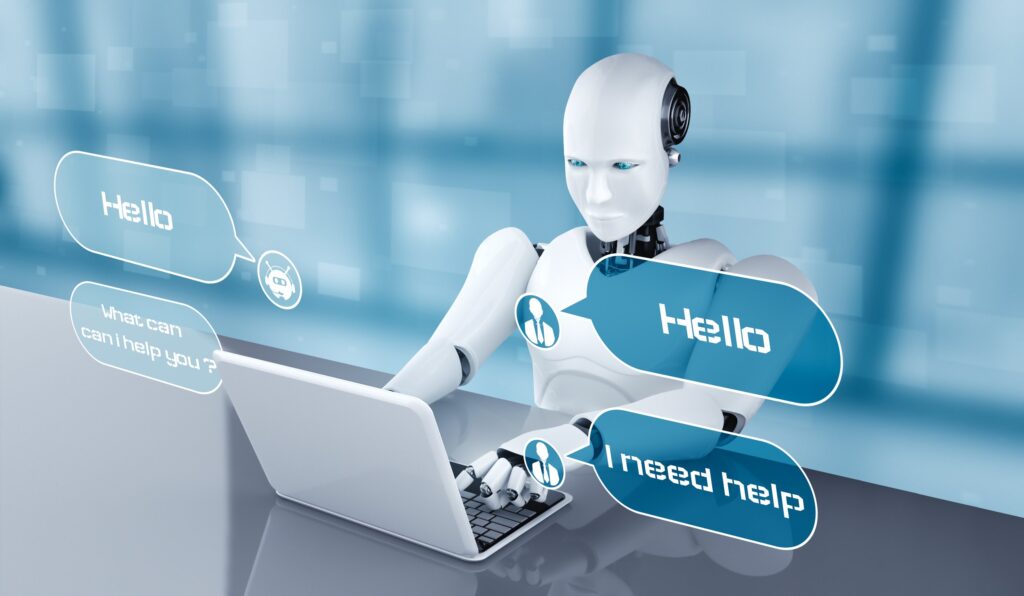
What is Customer Engagement?
Customer engagement is a buzzword that has gained significant traction in the business world, but what does it truly mean? At its core, customer engagement refers to the depth of the relationship a customer has with a brand. It’s not just about making a sale or resolving a complaint; it’s about creating meaningful interactions that foster loyalty and drive long-term customer relationships.
Beyond Transactions: While sales are crucial to any business, customer engagement goes beyond mere transactions. It encompasses every touchpoint a customer has with a brand, from browsing a website, reading a blog post, interacting on social media, to post-purchase support.
Emotional Connection: Engaged customers often have an emotional connection to the brand. They don’t just buy products or services; they resonate with the brand’s values, mission, and vision. This emotional bond makes them more likely to advocate for the brand, recommend it to friends and family, and remain loyal over time.
Two-Way Interaction: Customer engagement is not a one-way street. It’s a dynamic, two-way interaction where both the customer and the brand benefit. Brands get valuable feedback, insights, and loyalty, while customers receive personalized experiences, value, and a sense of belonging.
Measuring Engagement: Engagement can be measured in various ways, from tracking website visits, social media interactions, and email open rates to more qualitative measures like customer feedback and net promoter scores. The key is to identify metrics that align with the brand’s goals and continuously monitor and optimize them.
The Role of Technology: In today’s digital age, technology plays a pivotal role in enhancing customer engagement. Tools like chatbots, CRM systems, and analytics platforms allow businesses to personalize interactions, automate processes, and gain insights into customer behaviour, driving more meaningful and impactful engagements.
What are Chatbots?
Chatbots are computer programs designed to simulate human conversation. They interact with users in a conversational manner, often through text-based interfaces like chat or messaging apps. With the power of AI, chatbots can understand and process user queries, providing relevant and immediate answers.
The Surge in Popularity
The adoption of chatbots has skyrocketed in recent years. Here’s why:
24/7 Availability: Unlike human agents, chatbots are available round the clock. This ensures that customers from different time zones or those browsing after typical business hours receive immediate assistance.
Cost-Efficiency: Implementing a chatbot can significantly reduce the costs associated with customer service. Instead of hiring a large team to handle inquiries, a well-designed chatbot can manage a vast majority of common questions.
Instant Responses: In an era where consumers expect quick solutions, waiting times can be detrimental. Chatbots eliminate this issue by providing instant answers, enhancing user satisfaction.
Scalability: During peak times, businesses can get overwhelmed with customer inquiries. Chatbots can handle thousands of queries simultaneously, ensuring no customer is left waiting.
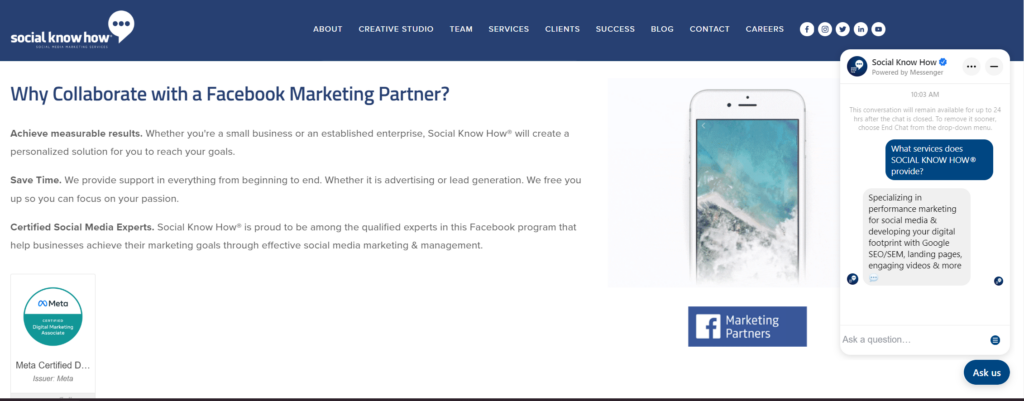
Enhancing Customer Engagement with AI
Chatbots, when powered by AI, can do more than just answer frequently asked questions. They can:
Personalize Interactions: AI-driven chatbots can analyze user behavior and preferences, tailoring their responses accordingly. This creates a more personalized and engaging experience for the user. By understanding the user’s past interactions and preferences, chatbots can offer recommendations that are aligned with the user’s interests, leading to a more meaningful engagement.
Handle Complex Queries: Advanced chatbots can understand context, sentiment, and nuances in language, allowing them to handle more intricate questions and even upsell or recommend products. They can mimic human-like conversations, making the user feel as if they are interacting with a real person. This capability ensures that users receive accurate and relevant information, enhancing their trust in the brand.
Integrate with Other Systems: Chatbots can be integrated with CRM systems, inventory databases, and more. This allows them to pull real-time data and provide accurate information to users. For instance, if a user inquires about the availability of a product, the chatbot can instantly check the inventory database and provide a real-time update.
Learn and Improve: Chatbots can be integrated with CRM systems, inventory databases, and more. This allows them to pull real-time data and provide accurate information to users. For instance, if a user inquires about the availability of a product, the chatbot can instantly check the inventory database and provide a real-time update.
Instantaneous Support: In today’s fast-paced world, customers expect immediate responses. AI chatbots cater to this need by providing instant answers to customer inquiries, reducing wait times, and improving the overall customer experience.
Chatbots and Human Agents: A Perfect Duo
AI chatbots can complement human agents effectively. While chatbots handle routine inquiries and tasks, human agents can focus on more complex issues, ensuring a seamless customer support experience. This collaboration between man and machine ensures that customers always receive the best possible support, regardless of the nature of their inquiry.
Getting Started with AI Chatbots
Businesses looking to harness the power of AI chatbots should first identify their specific customer engagement needs. Once these needs are clear, they can choose a chatbot platform or development framework and collaborate with experts to design, implement, and train chatbots to meet those needs.
Ready to Elevate Your Customer Engagement?
Harness the power of AI-driven chatbots and revolutionize your customer interactions. At Social Know How, we’re experts in leveraging technology to enhance customer engagement. Don’t get left behind in the digital age. Contact us today for a Free Social Media Assessment and discover how we can transform your business’s online presence.
In today’s digital age, Instagram has emerged as a powerful platform for businesses to connect with their target audience. With over a billion monthly active users, Instagram offers a unique blend of visual storytelling and engagement opportunities. However, to truly harness the platform’s potential, businesses need to strike a balance between organic engagement and paid reach. Here’s a deep dive into how combining these two can create a winning formula for your brand on Instagram.

Organic Engagement on Instagram
Organic engagement refers to the interactions your content receives without any paid promotion. It’s the genuine likes, comments, shares, and follows that come from your existing followers and those who discover your content through hashtags, the Explore page, or other organic means.
Benefits of Organic Engagement:
Building Authentic Relationships: Organic content allows brands to showcase their personality, values, and stories. It fosters genuine connections with followers and encourages two-way conversations.
Cost-Effective: Since you’re not paying for organic posts, it’s a cost-effective way to maintain an active presence on Instagram.
Establishing Brand Authority: Regular organic posts can position your brand as an authority in your niche. Sharing valuable content, tips, and insights can make your brand a go-to source for information.
Feedback and Insights: Organic engagement provides valuable feedback from your audience. Comments and direct messages can offer insights into what your audience likes, dislikes, and expects from your brand.
Paid Reach on Instagram
While organic engagement is crucial, the ever-changing Instagram algorithm can sometimes limit the visibility of your posts. This is where paid reach comes into play. Paid reach involves promoting your posts to reach a larger or more specific audience.
Benefits of Paid Reach:
Targeted Exposure: With paid ads, you can target specific demographics, locations, interests, behaviors, and more. This ensures that your content reaches the right people at the right time.
Boost Brand Awareness: Paid promotions can significantly increase your brand’s visibility on Instagram, introducing your brand to potential new followers and customers.
Drive Specific Actions: Whether you want to increase website visits, get more app downloads, or boost e-commerce sales, paid ads can be tailored to meet specific business objectives.
Flexible Budgeting: Instagram ads offer flexible budgeting options. Whether you’re a small business or a large enterprise, you can set a budget that suits your needs and adjust it based on performance.

The Synergy of Organic and Paid Strategies
When organic and paid strategies are used in tandem, they complement each other, creating a holistic Instagram marketing approach. Here’s how:
Enhanced Visibility: While organic posts engage your existing followers, paid promotions expand your reach, ensuring that your content gets in front of new potential followers and customers.
Trust Building: Regular organic posts establish trust and credibility. When a user sees a paid ad from a brand they recognize and trust, they’re more likely to engage with it.
Data-Driven Decisions: Insights from both organic and paid analytics can inform your overall Instagram strategy. For instance, if an organic post performs exceptionally well, it might be worth promoting it to reach a larger audience.
Ready to Amplify Your Instagram Strategy?
Harnessing the power of both organic engagement and paid reach on Instagram is crucial for any business looking to make a significant impact. But navigating the intricacies of the platform can be challenging.
At Social Know How, we specialize in tailoring social media strategies to fit your unique business needs. From planning and optimizing to executing and managing, our proven SOCIAL POEM formula ensures your brand stands out in the crowded digital space.
Why choose Social Know How?
Targeted Solutions: We offer personalized solutions to help you reach your marketing goals effectively.
Expertise: As a certified Facebook Marketing Partner, our team is equipped with the knowledge and skills to elevate your social media presence.
Creative Studio: Our in-house creative studio ensures your content resonates with your audience, capturing those special moments that matter.
